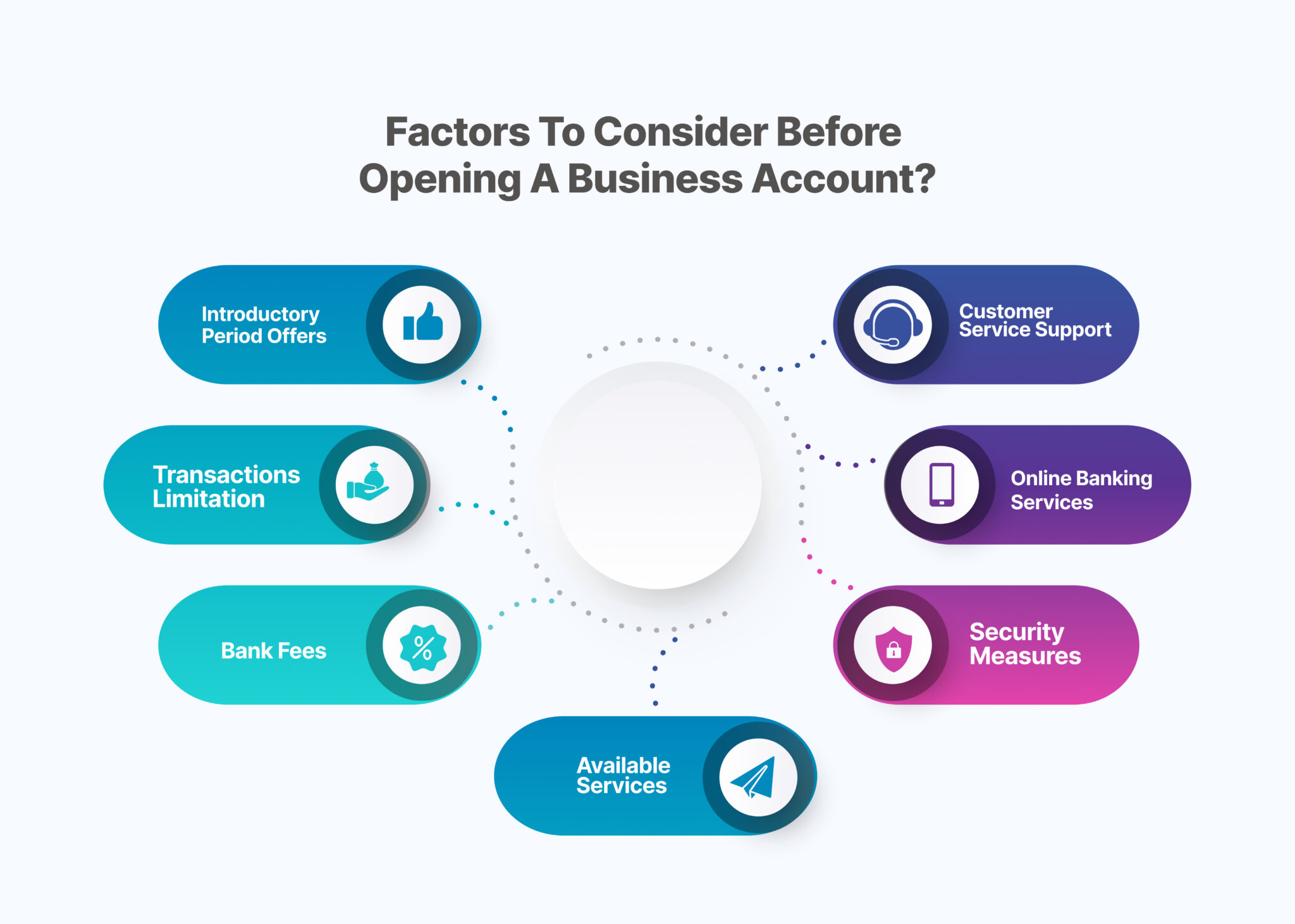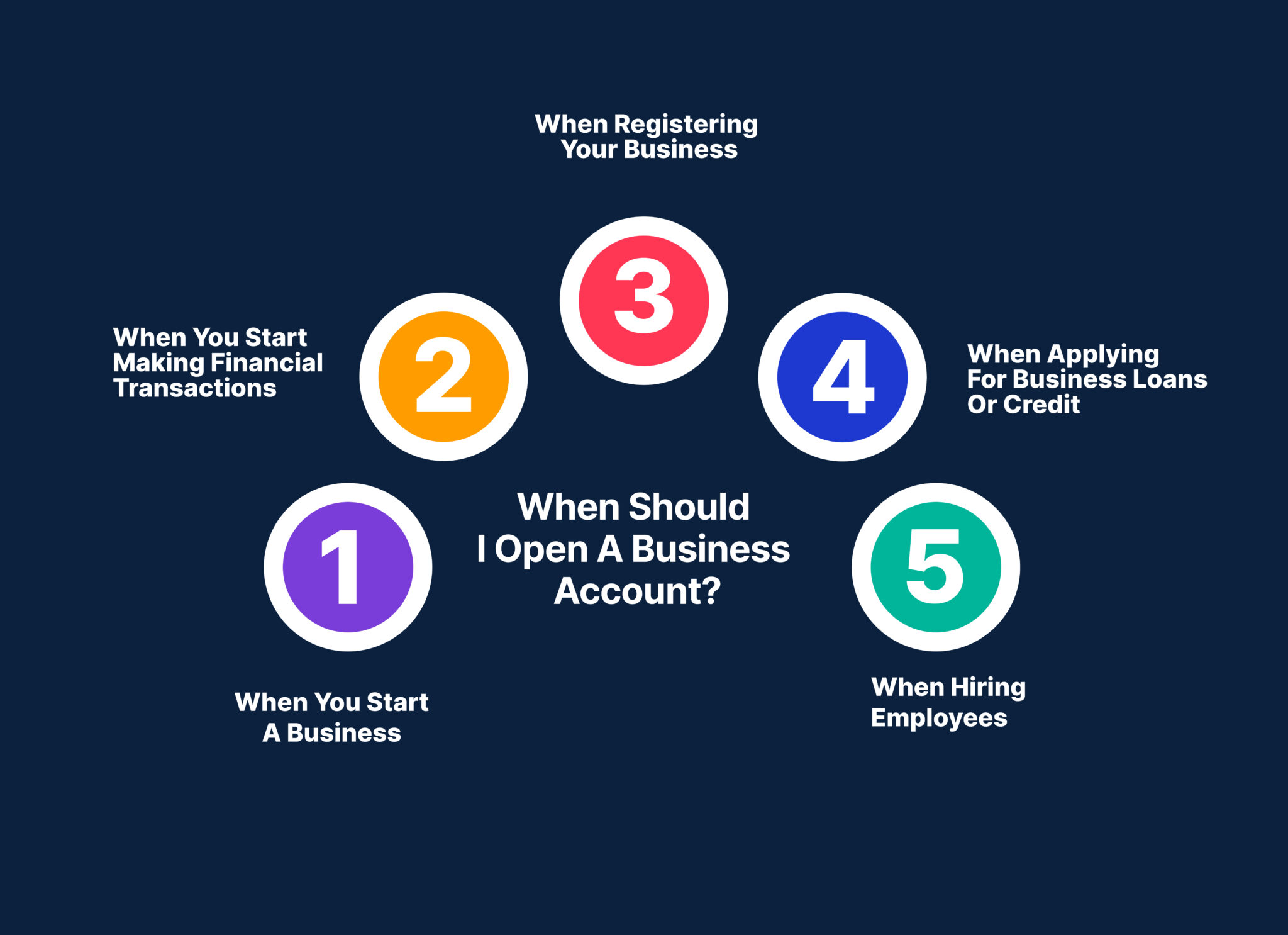Choosing the right business account is important for entrepreneurs and small business owners without any implications on the financial health or the overall management of the business.
With the right business account, your business can be assured to thrive as it will impact various aspects of the business operations, growth as well as stability.
In this post, we will explore the importance of making an informed choice when selecting a business account, how the right account can influence your financial management, and factors to consider when choosing business accounts.
Importance of choosing the right business accounts for your business
Choosing the right business account can be the nudge you need to improve the growth of your business. There are several importance a business account can serve for your business;
1. Streamlined Financial Operations
With the right business account, you can be assured of having a seamless day-to-day business transaction. With a streamlined process, it will contribute to operational efficiency, and save time and also resources.
2. Access to Financial Tools
By having a business account, you can be assured of having access to certain management tools that can help you monitor your transactions, manage your finances, and analyse your business income without having to worry about them.
3. Interest-earning and Investment Opportunities
There is a business account that offers interest and investment to their customer. For business owners who intend to open a business savings account, you will be able to earn interest on their balances without your money sitting idly. Which eventually promotes the overall financial growth of your business.
4. Business Credibility
Maintaining a business account positively influences your business credibility. A business account represents your business as a whole and this will leave a positive impression on your client upon seeing the account information. Also, it gives more opportunity to various financing options when looking for additional capital as it shows cases that you are intentional with your business.
Factors to consider before opening business accounts?

1. Introductory Period Offers
To encourage businesses to create business accounts, banks that offer business accounts provide beginner period offers which can vary depending on the bank you are signing up with. For some banks, this may include a reduction in maintenance fees, signup offers or even a certain interest on your first balance deposit.
To be sure you are getting the most out of your business account, compare introductory offers of banks you intend to open a business account with. Get acquainted with them all but keep in mind that a business account is not all about the introductory offers, ensure it ticks all the boxes for your business account requirements.
2. Transactions Limitation
Creating a business account with most banks could have its downside as most banks impose limitations on their business account monthly transactions which also involves accruing extra maintenance fees. This may not seem to be an issue for small businesses but for large-scale businesses, ensure these limitations will not pose as an obstacle after a period of operating the account.
Consequently, you may start accruing charges to make transactions Therefore, pay attention enough to pick whichever offers enough free transactions for your business needs.
3. Bank fees
To maintain your business account, there are maintenance charges you have to keep up with. For individuals who are new to the business and opening a business account for the first time, you want to be sure that there are no hidden fees and that the maintenance charges are what you can keep up with after the initial introductory offers.
Also, it’s important to avoid unnecessary costs to reduce miscellaneous expenses for businesses just starting. Maintenance fees usually compound as a monthly charge or a yearly charge. Therefore, understand the bank’s business account pricing plans and the charging period to save your business from any future hiked maintenance fees.
4. Customer Service Support
One of the main benefits of opening a business account is having an edge over other businesses without a business account and also having your transactions, requests and complaints prioritized.
However, your business account may not serve its purpose if the bank you are signing up with is unable to provide 24/7 customer support which can be the case especially if you are creating the account with the typical conventional bank.
Customer support could involve different aspects of your business where you may require the attention of calls, chats, emergency helplines or even a tailored solution for your business financial needs which a conventional bank could fall short of defeating the purpose of a business account.
But with a bank like Mintyn, where every business account is assigned to each of our customer support, you can be rest assured not to have a bad business day as a result of an account issue.
5. Online Banking Services
To have an efficiently managed account, evaluate the features and functionality of the bank’s online banking platform as a reliable one means a well-managed account. Look out for functionalities like seamless fund transactions, transaction history and statements, electronic bill payments, and a user-friendly mobile banking app.
You should also look out for the availability of a user-friendly mobile banking app that offers real-time account information and allows you to easily carry out some essential banking tasks to improve your business’s financial operations.
6. Security Measures
You will be more at peace if the bank you are signing up with will ensure the absolute security of your business funds. Consider the bank’s security measures dedicated to safeguarding your business account.
Inquire about features like multi-factor authentication which contribute an additional layer of security by requiring multiple forms of identification before you can access an account.
Also, ensure that whatever data is stored in the bank server is encrypted to prevent a breach of access. Inquire about how they prevent fraud and how fast they resolve such cases and also for any suspicious activities.
Choosing a bank equipped with the required security measures will ensure the safety of your business and also reduce any risks of being susceptible to fraud or unauthorised access. While picking a bank for your business account, be sure to make security a priority to have protected business financial interests.
7. Available Services
After considering some of the primary factors that can impact your business, you may also want to consider some secondary factors that can at one point or the other aid your overall banking experience and business operations. This includes business credit card options, fee waivers and discounts, account customization options, and making chequebooks. You should pay attention to how these services are rendered in your choice of bank
Why you should opt for a Business Bank Account if you have a Business.
Opening a business account is important for several reasons as it offers a range of benefits that contributes to the smooth financial management and credibility of the business. You should open a business account for the following reasons.
- Separation of Business and Personal Finances
Having a business account, helps you establish differences between your personal and business finances and aids in accurate financial management of the business. With a separate account, you can maintain a clear distinction between the two accounts. It will also help track your business transactions, income, and expenses and ensure your assets are protected in business legal issues.
- Access to business banking services
A business account allows you access to various banking services that can aid your business operations. These services are usually tailored to specific business needs. Which may include services like; business loans, lines of credit, merchant services, expense tracking and budgeting tools. By accessing these services for your businesses, you can manage cash flows, make payments and have well-managed business operations.
- Professionalism
Having a dedicated business account brands your business as a professional one. It shows your customers, clients and partners that you have a legal business which in turn promotes trust and confidence in your business operations.
- Easier Auditing and Financial Reporting
A separate business account simplifies the process of auditing and financial reporting. All business transactions, incomes and expenses are recorded in a single account which creates a traceable financial trail for your business. This traceable trail reduces the likelihood of errors during financial reporting.
- Aids Business Growth
A business account provides financial infrastructure that supports the growth of your business. A business account can aid your business growth by providing access to business financing, credit-building opportunities, financial visibility, streamlined payment process and other opportunities that come with a business account that can contribute to the sustainable growth of your business.
When Should I Open a Business Account?

Opening a business account is an important step to take to establish your business as an authority. However, the timing to open one may differ depending on its financial activities or your business structure. However, if you are considering when to open a business account, you should take the following situation into account.
- When you start a business
Mistakes most small business owners make are starting a business and operating it on a personal account.
Doing this can stunt the growth of your business as there is no distinct difference between your business and personal finance which can affect the possibility of tracking your business income, expenses, and finances and may even record errors for financial reporting.
You may also find it difficult to demonstrate credibility to your customer as a new business. Therefore, no matter how small your business is, ensure to open a business account for it.
- When you start making financial Transactions
As soon as your business starts engaging in financial transactions like sending payments for business-related expenses and receiving payments from customers, it’s advisable to open a business bank account. This will ensure all your financial activities are streamlined and conducted under a business name.
- When Registering Your Business
Registering your business is usually a critical point for you to open a business account as it is often tied to legal requirements. When you decide to register your business, such as obtaining a business license, CAC, or incorporating.
It is important to have a business account as it is an important part of the registration process. At Mintyn Bank, we streamline the process by offering CAC Registration services and seamless bank account setup.
You can easily initiate this process by downloading the Mintyn bank app
- When applying for Business Loans or Credit
If you intend to apply for business financing such as loans, credit or business credit cards, having a business account is an important factor to be considered for the financing.
This is important because most loan institutions have different requirements like business financial statements, business cash flow(profit and loss), or balance sheets which you have to fulfil before applying.
By having a business account, you can easily provide all these and demonstrate to the lending institution how reliable and committed your business is.
A business account also facilitates the post-loan application process. It ensures loans are deposited in a business account and repayments are also made through a business account which serves for record-keeping.
- When Hiring Employees
At some point in your business growth, you will need to hire employees then it becomes essential to open a business account. This account simplifies payroll processes, allows you to set up direct deposit for your employees and ensures a timely and secure payment. It also helps to protect your business and employees by ensuring financial transactions are conducted securely.
Types of Business Bank Accounts
Financial institutions offer several types of business accounts to meet various business needs. However, the common types of business accounts are;
- Business Savings Account: A business savings account you to save from your business working capital. A savings account is designed for savings rather than making consequent transactions. It also offers more interest compared to other types of business accounts. With a savings account, you can have emergency funds for your business.
- Business Current Account: A current account is a transactional account that allows businesses day-in and day-out financial operations. It offers features like check writing and depositing, debit card withdrawal and depositing, and online banking with no set limit on the number of transactions.
- Business Certificate of Deposit: This involves a lump sum of money for a fixed period in exchange for a higher interest rate a business CD renders the fund inaccessible until the CD matures.








